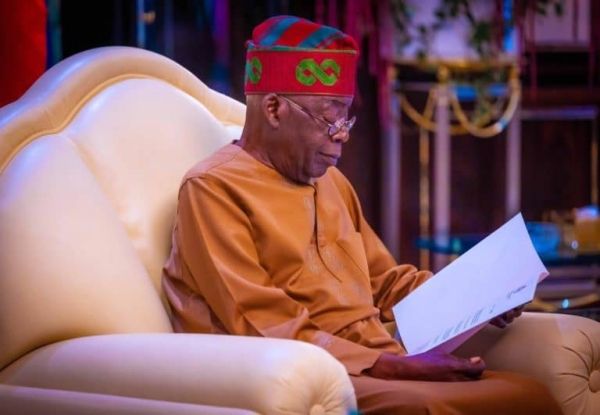Kaduna State Governor, Uba Sani, has dismissed claims by opposition politicians that President Bola Tinubu’s administration has marginalised the northern region in appointments and project allocations.
Speaking to newsmen at the Presidential Villa after a meeting with the President, Sani insisted that the North occupies key positions and remains central to national decision-making under the current administration.
The governor pointed to what he described as “tangible evidence” of northern prominence in strategic federal offices and development initiatives.
“You cannot be talking about marginalisation when you have the Minister of Defence, Minister of State for Defence, the National Security Adviser, the Chief of Defence Staff, and the Chief of Army Staff, all from northern Nigeria,” he said.
“Even the heads of the Civil Defence and Immigration services are from the North. Both the Minister and Minister of State for Agriculture are northerners, and the Health Ministry is led by someone from the North. When you consider these facts, what exactly are we calling marginalisation?”
Sani urged northern stakeholders to stop assigning blame and instead focus on constructive solutions to the region’s challenges.
“Northern Nigeria’s problems are complex and rooted in history, but blaming others is not productive,” he said.
He emphasised that northerners are well represented in government at all levels and stressed the need for investment in human capital development, unity among leaders, and collective responsibility.
“Government alone cannot solve these challenges. It requires the involvement of leaders, business people, and communities,” he said.
The governor referenced the landmark gathering of northern leaders at Arewa House in Kaduna on July 29–30, 2025, describing it as a turning point.
“The meeting attracted about 80 government officials from northern Nigeria alongside major stakeholders, including academics, civil society, market women, youth groups, and traditional and religious leaders,” he said.
“For the first time in our nation’s history, such a broad representation came together to discuss, in a holistic manner, the challenges facing northern Nigeria.”
According to him, participants at the meeting unanimously agreed, based on data and statistics, that no zone in the North is being marginalised.
Sani also highlighted the need to address the region’s educational crisis. Citing 2023 UNICEF data, he said 18.5 million children were out of school in Nigeria, with 70 to 80 percent of them in the North.
“This is a serious problem that requires focused intervention,” he stressed. “The issue is not new. Even in 2019, when I was in the Senate, the number was already at 18 million. We must change this trajectory.”
He called for collective action, urging all sectors to contribute.
“We should not just sit and complain or blame others. We must bring together business leaders, civil society, and government to chart a new path. Many of the richest Nigerians, including Africa’s richest man, are from the North. We need their active participation in solving these problems.”
On his meeting with President Tinubu, Sani said he briefed the President on key initiatives in Kaduna, including the state’s light rail project, which complements the Bus Rapid Transit (BRT) system launched six months ago.
“We are working closely with the federal government on our light rail project in Kaduna,” he said. “I came to brief Mr. President on the progress being made.”
He also confirmed that construction of a cancer centre within the state’s new 300-bed Bolami Julio Specialist Hospital is underway.















